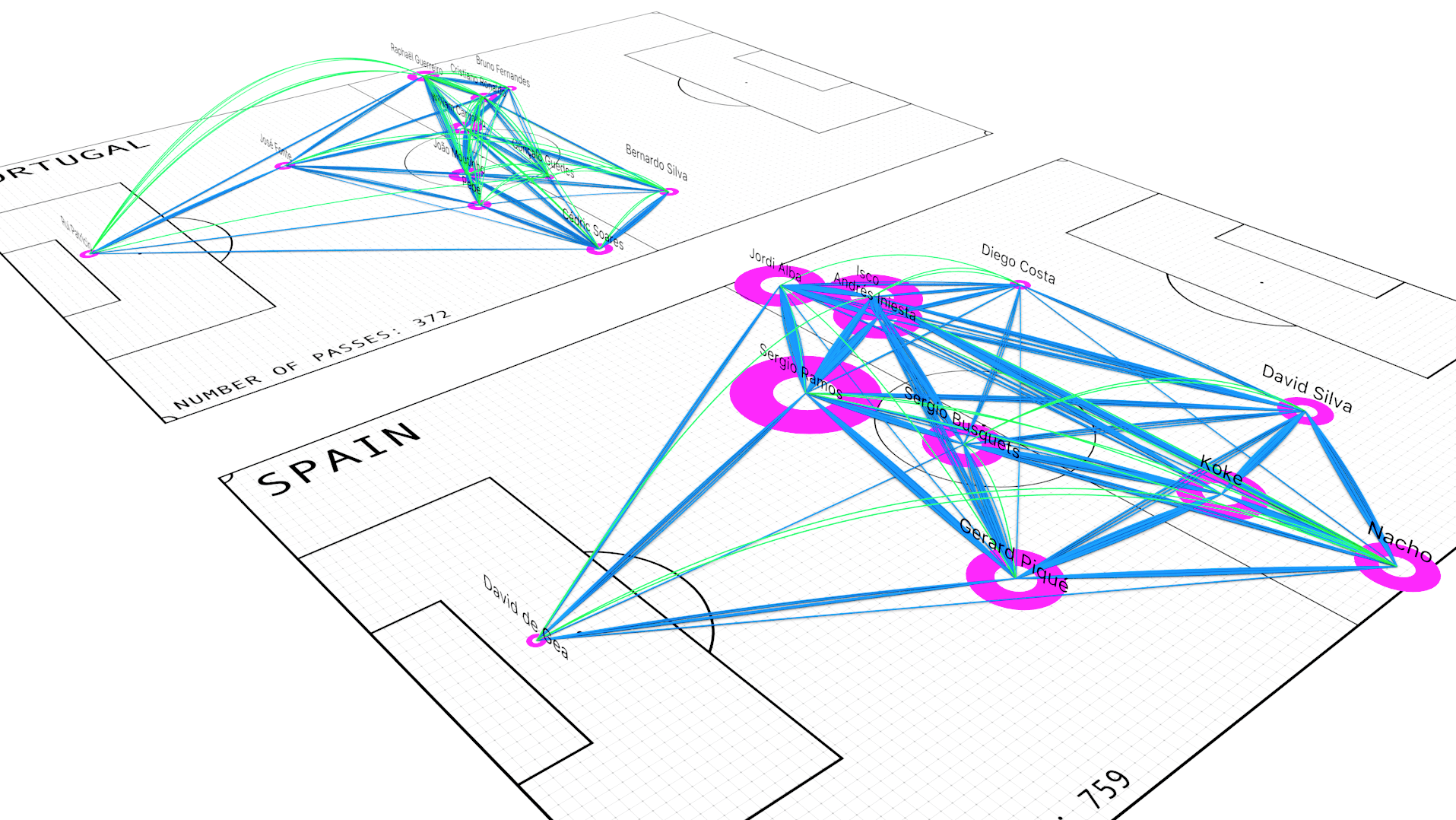Soccer has changed with the incorporation of new technologies. Now a large amount of information is generated thanks to Big Data, which allows us to obtain data about the sport. With this new tool it helps to understand the situations that occur during a match. The more data that is generated, the more sports knowledge is acquired.
Currently, five minutes after a player in the Spanish top flight scores a goal, Movistar gives the replay with the chances the player had of scoring a goal. It is a useful tool that gives a lot of information to the neutral viewer. In addition, it helps to accompany the broadcast and is an innovative support, but it can still be improved in some aspects. For example, it could provide the data on which it is based. This would also be an exercise in transparency and would have more credibility among viewers.
Specialized companies process these data instantly and broadcast them live to television stations or bookmakers. They also sell this data to teams to help them improve in some aspects and to other companies. They count every pass, every shot and every action that takes place on the field to update a live database. Big Data in soccer deals with technical, tactical aspects and conditions related to the performance of teams and players in the competition. This tool is no longer just for understanding soccer, but the soccer teams themselves use all the data to improve performance during the season.
From inside
With Big Data, soccer spectators are also increasingly putting themselves in the players’ shoes. Seeing the reality of how difficult it is to score a goal or how easy it is to score. In addition, Big Data in soccer means a change in the sports communication model. In the not-too-distant future, a large part of sports news will be generated almost exclusively from analysis.
The goal with this tool should be to move towards a model in which data is able to assist in decision making without undermining the decision. Big Data is there to help and understand soccer. It not only helps at a sporting level for soccer clubs, but also for the media. Increasingly in the sports press, databases of players are collected, which collect all the data. They also help the spectator to understand certain situations in the game.
At the level of how Big Data affects players is quite logical, but uncertain at the same time. Normally, data is used to see what kind of actions they have to improve. Also to see what their strengths and weaknesses are. So to enhance the strong ones and minimize the weak ones. Although, sometimes this tool is not useful and does not reflect the great game they have played during the match. During a soccer match around 30 players are involved, counting the starters and also the possibility of players who come in as substitutes.
Transfers through data
When signing players for clubs Big Data is also useful to see if they have all the characteristics to sign for a new club. Also to see the departures and the players that are not useful. The tool helps and favors soccer teams. Currently, they already have analysts in their squads. Part of the staff are usually analysts who analyze the rivals and see the statistics of the opposing teams.
Cesar Arzo, former first division player of Villareal’s youth academy, explained on the AleBia Sports Analytics website that clubs, each within their possibilities, have to think about building a solid big data department. In this department there must be experts in data management.
Bookmakers are using databases to place bets. Betting is linked to data. Databases are not only being used for soccer, but for all sports. Not only the popular ones such as soccer, basketball, soccer and hockey. There is also data for horse racing, greyhound racing and sports that you would never think of. The future of sports is directly related to data. We live in a society in which we want instant information and databases allow us to have it within seconds of the actions of the game.
